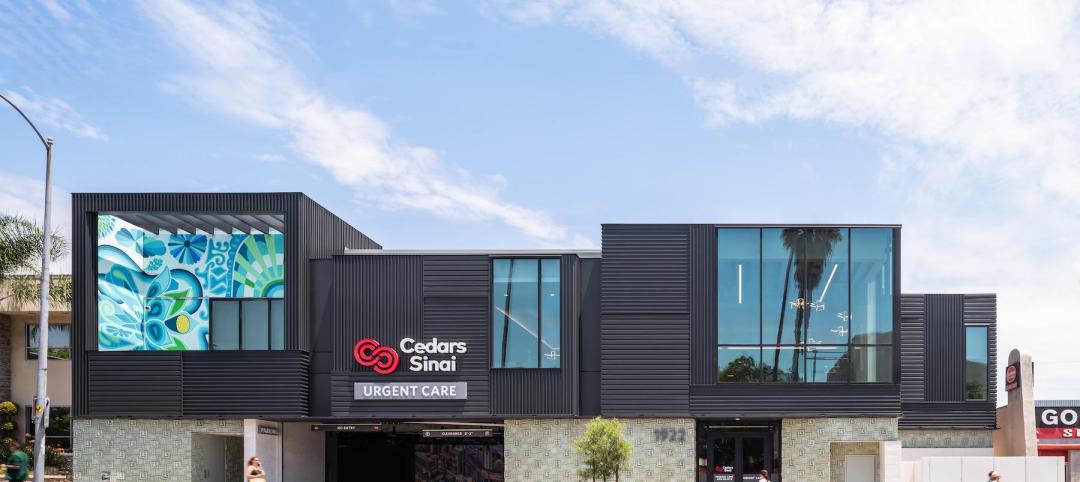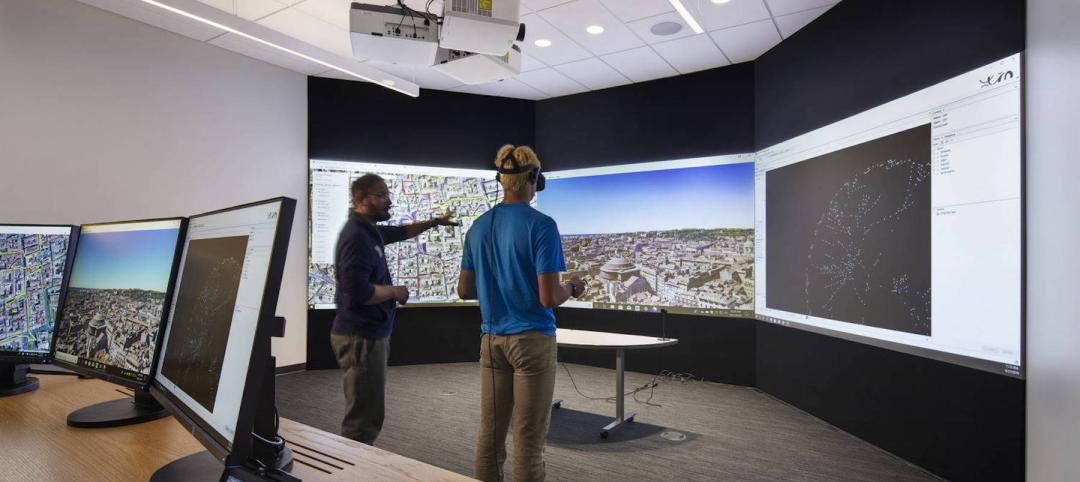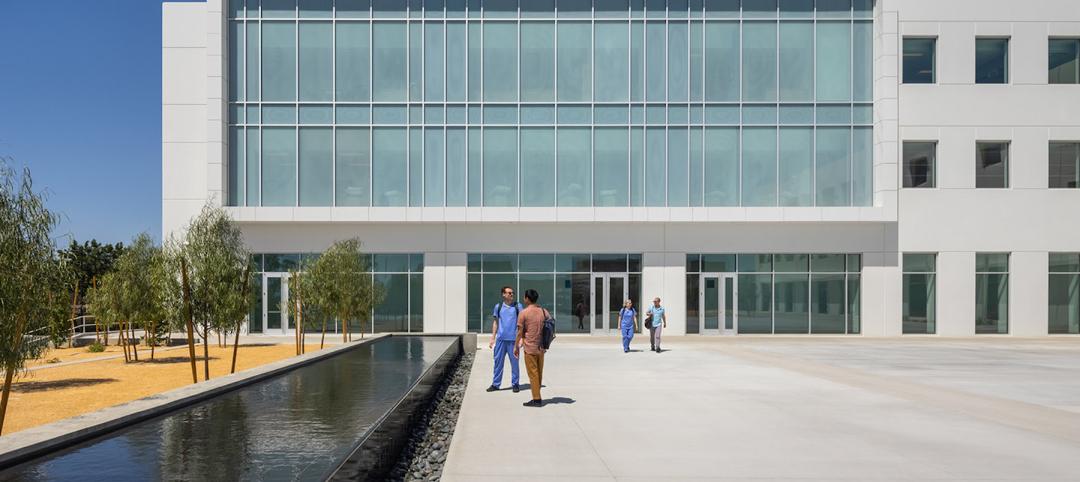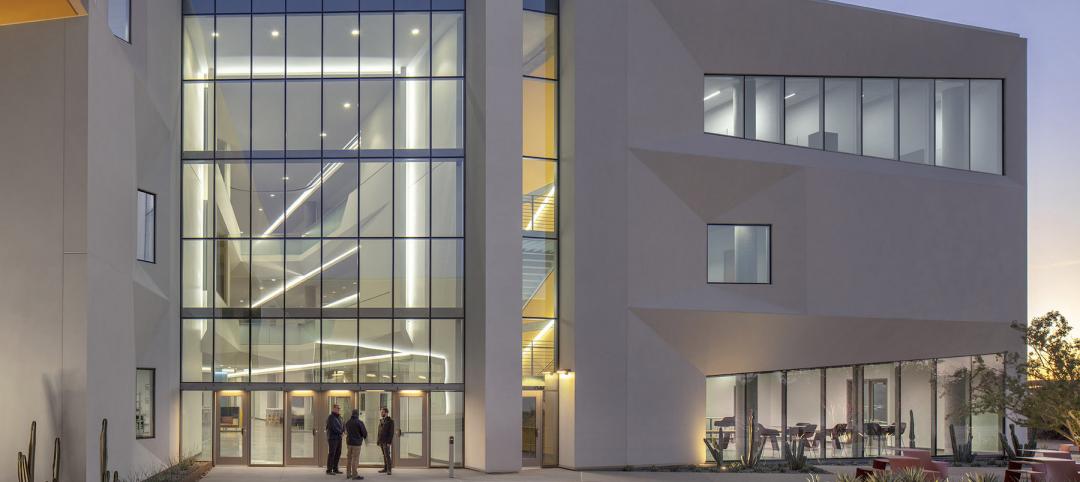Last week, Bexar County in Texas broke ground for the construction of The Women’s and Children’s Hospital at University Hospital, a freestanding 12-story 600,000-sf tower that will include two separate emergency rooms, 300 beds, and a neonatal intensive care unit. The facility, which is scheduled for completion in late 2022, will open with a 900-space parking garage attached to it.
This $500 million project—whose funding was approved in 2017 by the county, which owns University Health System in partnership with UT Health San Antonio—will serve women and children patients exclusively, making it the first of its kind in South Texas, and one of the few such hospitals in the country.
Currently, children occupy the seventh floor of University Hospital’s 1-million-sf Sky Tower extension (which opened in 2014), and the labor and delivery wing occupies the fourth floor of the Horizon Tower, which was built decades ago.
Originally, this project was planned as a smaller building costing $390 million. But its size and budget were broadened to address the growing population of San Antonio, which is located within this county. San Antonio, with more than 1.5 million people, is the seventh-largest city in the U.S., and one of its fastest growing. The San Antonio metro area, with nearly 2.2 million, makes it the 24th-largest metro in the country.
The Women’s and Children’s Hospital will also serve as a medical school that partners with University Health System on research and educational initiatives.
ZGF, working with local architectural firm Marmon Mok, is programming and designing the new tower. Its construction and engineering partners include general contractors Joeris and JE Dunn, Broaddus & Associates (program management), Affiliated Engineers and Alderson & Associates (MEP), IES/Magnusson Klemencic (SE), and Pape Dawson/Gonzalez De La Garza (CE).
During the construction, the progress of the project can be viewed live via two webcams.
The new tower represents the next phase of the hospital system’s Capital Improvement Program, and as such is being funded without any tax rate increases, according to James Adams, chairman of the Bexar County Hospital District Board of Managers.
Related Stories
Daylighting | Aug 18, 2022
Lisa Heschong on 'Thermal and Visual Delight in Architecture'
Lisa Heschong, FIES, discusses her books, "Thermal Delight in Architecture" and "Visual Delight in Architecture," with BD+C's Rob Cassidy.
| Aug 16, 2022
Cedars-Sinai Urgent Care Clinic’s high design for urgent care
The new Cedars-Sinai Los Feliz Urgent Care Clinic in Los Angeles plays against type, offering a stylized design to what are typically mundane, utilitarian buildings.
| Aug 15, 2022
IF you build it, will they come? The problem of staff respite in healthcare facilities
Architects and designers have long argued for the value of respite spaces in healthcare facilities.
AEC Tech | Aug 8, 2022
The technology balancing act
As our world reopens from COVID isolation, we are entering back into undefined territory – a form of hybrid existence.
| Aug 3, 2022
Designing learning environments to support the future of equitable health care
While the shortage of rural health care practitioners was a concern before the COVID-19 pandemic, the public health crisis has highlighted the importance of health equity in the United States and the desperate need for practitioners help meet the needs of patients in vulnerable rural communities.
Healthcare Facilities | Aug 1, 2022
New Phoenix VA outpatient clinic is one of the largest veteran care facilities in the U.S.
The new Phoenix 32nd Street VA Clinic, spanning roughly 275,000 sf over 15 acres, is one of the largest veteran care facilities in the U.S.
Building Team | Jul 12, 2022
10 resource reduction measures for more efficient and sustainable biopharma facilities
Resource reduction measures are solutions that can lead to lifecycle energy and cost savings for a favorable return on investment while simultaneously improving resiliency and promoting health and wellness in your facility.
Healthcare Facilities | Jun 22, 2022
Arizona State University’s Health Futures Center: A new home for medical tech innovation
In Phoenix, the Arizona State University (ASU) has constructed its Health Futures Center—expanding the school’s impact as a research institution emphasizing medical technology acceleration and innovation, entrepreneurship, and healthcare education.
Healthcare Facilities | Jun 20, 2022
Is telehealth finally mainstream?
After more than a century of development, telehealth has become a standard alternative for many types of care.
Codes and Standards | Jun 14, 2022
Hospitals’ fossil fuel use trending downward, but electricity use isn’t declining as much
The 2021 Hospital Energy and Water Benchmarking Survey by Grumman|Butkus Associates found that U.S. hospitals’ use of fossil fuels is declining since the inception of the annual survey 25 years ago, but electricity use is dipping more slowly.

















